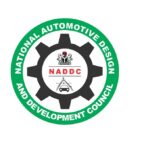June 21, 2024. SEA-LNG’s new report titled “Decarbonizing Shipping Fueling The Net Zero Transition Through The Liquefied Methane Pathway” explores key facts about liquefied methane, its pathway to support net-zero GHG emissions in shipping and potential synergies with other emissions reduction measures, especially as new EU laws could widespread adoption of liquefied methane vessels and infrastructure.
The shipping industry recognizes that it must decarbonize the fuels it uses to support global efforts to combat climate change. Time is of the essence and action is needed today. Currently, the majority of ships (>95%) use heavy fuel oils (HFO), diesel (as Marine Gas Oil or Marine Diesel Oil) onboard, or Very Low Sulphur Fuel Oil (VLSFO). Various renewable fuels have been proposed as possible replacements to support climate neutrality by 2050, however, rapidly scaling their deployment can face significant technical and economic challenges.
Liquefied fossil methane (LNG) is today developing as the principle alternative marine fuel, with wide availability through existing and expanding global bunkering infrastructure and proven vessel technologies. It starts decarbonizing shipping today and provides a competitive pathway to a net zero greenhouse gas (GHG) emission future using liquefied biomethane and liquefied e-methane.
Recently adopted EU laws will support the widespread adoption of liquefied methane vessels and infrastructure in the coming years to decarbonize shipping. To successfully achieve decarbonization and competitiveness of European maritime transport, SEA-LNG has three key requests for the next mandate of the Commission and the European Parliament:
- Prioritize EU funding for low and zero carbon maritime fuels production including liquefied biomethane and e-methane.
- Ensure European industries and maritime transport have access to sufficient amounts of biomethane and e-methane irrespective of where it has been produced (inside or outside EU).
- Uphold technology neutrality and performance-based decarbonization targets. Policymakers should set the clear targets and enable business and industry to choose the most efficient way of reaching them.




